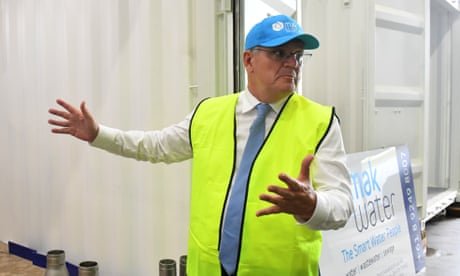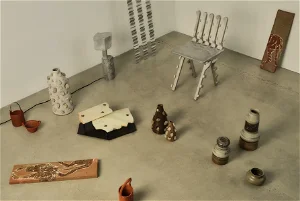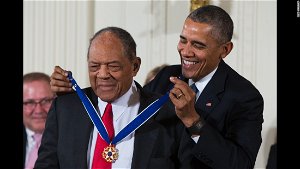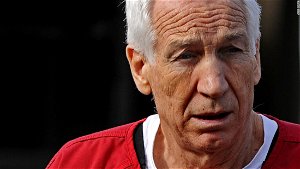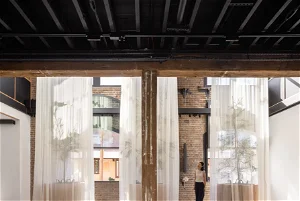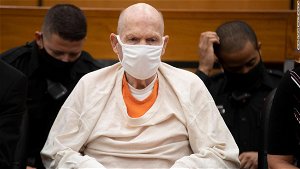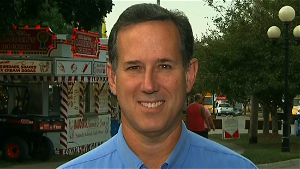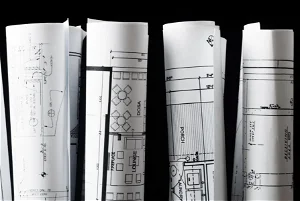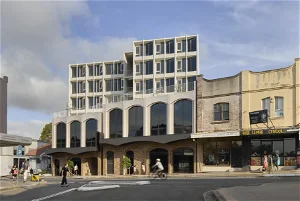There will be plenty of time for postmortems of election campaigns after Saturday night. As the clock winds down to the closing of the polls, I've been processing the sum of the past three years.
Back in the middle of 2020, at the end of the first wave of the Covid-19 pandemic, I had a conversation with Scott Morrison about a verse from the prophet Isaiah. Specifically, Isaiah 58:12. "Your people will rebuild the ancient ruins, and will raise up the age-old foundations; you will be called repairer of broken walls, restorer of streets with dwellings."
Morrison told me he happened upon this verse during the catastrophic summer bushfires six months earlier - a crisis he fumbled in full public view. I was interested in what it meant to him. Morrison had referenced it during a Zoom prayer group session that later surfaced online.
In the prayer group, the prime minister had categorised the verse as a "prophecy over our nation". He told fellow believers during that session that leading a nation during a pandemic was like when Moses looked out to sea and held up his staff - a moment requiring great faith and righteous self belief.
When I met him at the beginning of July in his office in Canberra, Morrison told me Isaiah 58:12 resonated with him because it spoke of recovery after a crisis, be it a bushfire or a pandemic.
The verse actually has meaning on two levels. It's a reference to the resilience of humans and the strength of humans fortunate enough to be blessed by God's will. But in our conversation, Morrison didn't want to elaborate beyond the obvious. The verse had spoken to him because "we are rebuilding".
I've thought of the Morrison of Isaiah several times over this past week as the prime minister, Australia's self-declared bulldozer, has wrestled with the idea that he can or should or might change - a whimsically self-serving notion the prime minister projected into the final week of the 2022 election during an ears-pinned-back effort to change the campaign conversation.
Back when I was bugging him about Isaiah, Morrison was at the height of his prime ministership, because at that time, he governed as if power was actually about something. A purpose was found.
He'd gathered the premiers and the country's brightest officials and public health experts to manage the most serious pandemic in a century. It's true the premiers saved Morrison from himself on more than one occasion. But it is also true in that first six months the prime minister did what the moment required, funnelling support out the door to protect lives and livelihoods - something a more ideological Liberal prime minister would have struggled to do.
Morrison now characterises that period as him bulldozing in the national interest.
But Morrison wasn't bulldozing, actually.
I was there. I watched him carefully. He was building. Morrison assumed the weight of the crisis on his watch. People in the room with him at the time say he dialled his political filter down and allowed his technocratic sensibility to guide much of the decision making.
The balance of power within the federation also imposed an important automatic stabiliser on Morrison's temperament. The prime minister had to collaborate within the federation to get anything done, and that power-sharing reality impeded his hard-wired tendency to ride roughshod. It's been a different dynamic inside the Morrison cabinet, given colleagues serve at the prime minister's pleasure.
It's one of the quirks of politics that your strength can also be a weakness.
Morrison needed all his powers of implacable self-direction to win the election in 2019 that all his colleagues believed he would lose, and perhaps those powers will save the Coalition again on Saturday night. This is a difficult election for Labor to win, so that is certainly not impossible.
But whatever the final result, win, lose or draw, Morrison is now weighted heavily with negative voter perceptions of arrogance and alpha-male entitlement.
Morrison's obduracy is too fixed and front-loaded to conceal, and it hasn't just cost him in terms of voter approval. This quality has been a substantive problem for Morrison as a leader, and that's created measurable problems for the country. If you believe you are right all or most of the time, and you lack a diversity of input around you, if you lack people in your life who care enough about you to tell you when you are wrong, this can lead to poor decision making.
Here are four standout examples.
Morrison was wrong when he characterised a federal anti-corruption body as a "fringe issue" - meaning an issue that wouldn't switch any votes. Saturday night will prove the prime minister wrong, even if all of the teal independents ultimately fall short of gaining a seat. If Morrison believes we live in an age where democracy is on the line (and he says that reasonably frequently) he should have prioritised integrity institutions to strengthen it.
Morrison was also wrong when he tried to manoeuvre his way out of parliament's #MeToo moment instead of understanding that the women of Australia needed him to listen and learn. He has managed to coax some of the women who parted ways with him in 2021 back to the fold, but some women he lost during that period will make a point of never voting for him, or any government he is part of.
Morrison was right to set the Coalition on the path of unwinding the damage created when Tony Abbott invented a carbon tax to win an election. After a decade of weaponised lying, executing a climate policy pivot was always going to be difficult for him to achieve. But this could have been an epochal shift, and it wasn't; he could have insisted it was meaningful, and he didn't. It was a choice to come up well short and hope our allies and Australian voters wouldn't notice.
And as correct as Morrison is to observe we live in dangerous times, and consider what Australia might need to do to safeguard our national interest, the prime minister was wrong - more than wrong, he was reckless - to weaponise national security for domestic political purposes.
As well as the prime minister's obduracy, there's also the disconcerting element of constant calculation, staging and performance. Morrison used to wear chinos and baseball caps to be more relatable. Now he wears dark, well-cut suits, because that fits his current prime ministerial character - Australia's strong leader who may not be popular but is nonetheless worthy.
I'm sure Morrison feels personally offended when his prime ministerial pageantry is remarked upon; in fact, I've seen him take offence.
I'm sure he would feel that element of commentary is gratuitous because the various characters Morrison projects are always fragments of himself. I also understand why Morrison would feel frustrated by the banality trap of public life - where winning elections and dominating or distracting disrupters, be they opponents or journalists, involves an element of chook feeding or vaudeville.
But rather than resist the banality trap, he leans in. Morrison has spent a prime ministership creating and curating images and impressions that speak to his messaging or the character he is currently projecting. But occasionally art intersects uncomfortably with life.
The relentless performance art of the Morrison prime ministership ultimately collided with a small boy on a playing field in Tasmania in the final week of this election campaign. Fortunately the young boy wasn't seriously injured. He could have been.
I'm not sure how many voters felt that particular collision at a deep level. But I did, witnessing it, and the more I replayed the moment, the worse it got.
Mine wasn't a sensation of referred maternal anxiety (although I confess there was a bit of that). It was the palpable sense of a whole ecosystem being out of kilter - politics and the media chasing the sugar rush of untethered politics. It felt like insanity chasing itself.
I've felt those moments too often in this campaign.
I don't know if Australian voters will vote for a reset on Saturday or not.
But I know the country needs one - and that includes some sober thinking in my profession as well.


